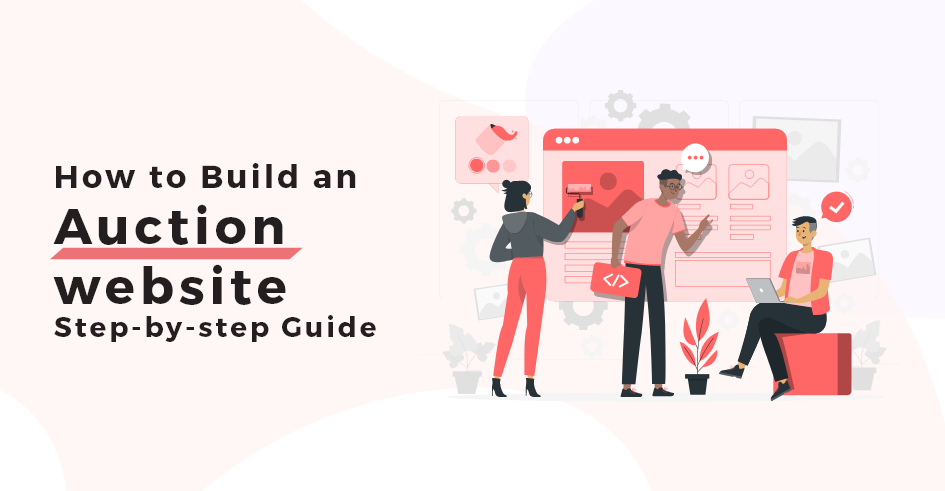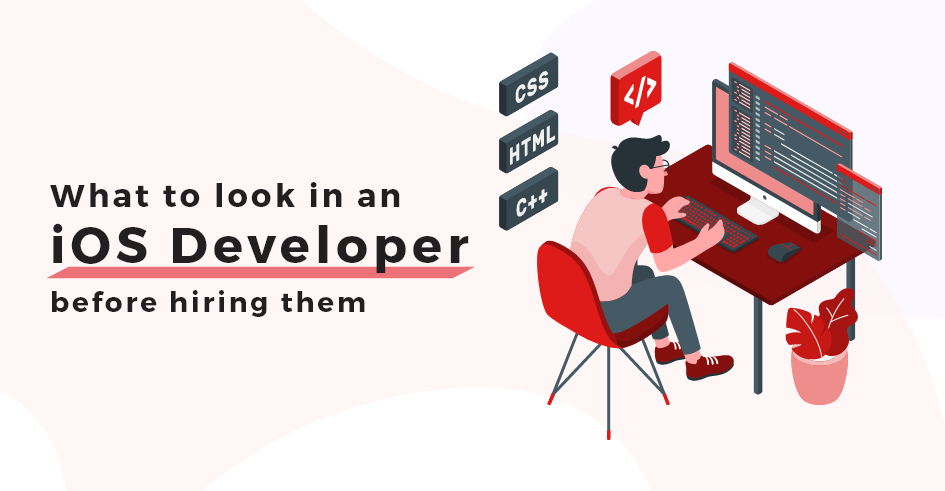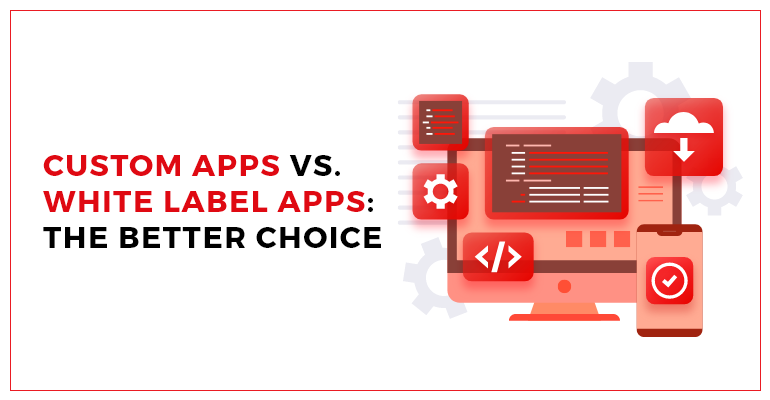Overview: Online Auction is becoming increasingly popular. This article is a step-by-step guide to build an Auction website and estimates the cost involved. The most popular auction website example is a website like eBay. Read on to build your auction website.
Auction websites have been in existence for quite some time. However, their usage has significantly increased in the past few years. These platforms offer an opportunity for buyers and sellers to actively participate in bidding for the acquisition or sale of goods. Launching a business using an auction website is undoubtedly a smart decision as it enables seamless and fast-paced expansion of your customer base.
Selling goods through an auction website can effectively broaden your customer base, making it a wise choice for expanding your business. These websites are immensely popular among buyers as they offer lower-priced items, while sellers can easily sell their used goods. Creating a website like eBay requires custom web development to ensure the best solutions for your online auction business.
If you are eager to learn how to create a website like eBay, rest assured that it is not as difficult as you may initially think. In the following article, you will discover the necessary steps to build an auction website and make it a success.
What is an Auction Website?
An auction website is an online platform that facilitates buying and selling various items through bidding. Unlike traditional retail websites where prices are fixed, auction websites allow users to bid on items, with the highest bidder winning the right to purchase the item at the final price they offered. Here’s a breakdown of how to Build an Auction Website that will work:
- Listing Items: Sellers create listings for the items they want to sell. These listings typically include a description of the item, clear images, and an initial starting price.
- Bidding: Interested buyers place bids on the item. Bidders can see the current highest bid and choose to bid higher if they wish to secure the item.
- Auction Timer: Auctions are usually time-limited, with a set duration for bidding. The timer creates a sense of urgency, encouraging competitive bidding.
- Winning the Auction: The highest bidder wins the auction when the timer runs out. They are then obligated to complete the purchase at the final bid price.
What’s eBay?
eBay, founded in California by Pierre Omidyar in 1995, has grown from a hobby to a major source of income and has become a well-known online auction company. It is a popular online platform for buying and selling items, with approximately 187 million active users. Despite not being as popular as Amazon or social media for marketing, eBay has experienced a significant increase of 100 million users in the past 8 years. In the first quarter of 2021, eBay’s gross merchandise volume (GMV) was $27.46 billion.
Apart from buying and selling items, a website like eBay can also be used as a marketing platform. For example, Smudgy Monkey was able to Build an Auction Website to advertise its gifts and accessories on eBay and saw a 96.44% increase in revenue.
Build an auction website – It is more than a Hobby.
While many auction websites start as personal projects or hobbies, they often evolve into thriving businesses that solve real-world problems. These platforms provide a valuable service by connecting buyers and sellers in a dynamic online marketplace. Expert software development services play a pivotal role in turning your vision into a fully functional and user-friendly website. With the assistance of professional developers, you can create a platform that allows users to bid on items and conduct secure transactions in real time.
Take, for example, the success story of eBay, a global giant in the online auction industry. eBay provides individuals with a seamless platform to sell used electronics, cars, books, and various other items effortlessly. This not only extends the lifespan of products but also reduces waste by diverting items from landfills. Moreover, to Build an Auction Website, eBay empowers working-class individuals to access branded products and everyday essentials at more affordable prices, thereby enhancing their quality of life.
Why Build an Auction Website?
Building an auction website offers numerous advantages, from facilitating seamless transactions and rapidly growing a user base to cost-effectiveness and scalability. It fosters customer loyalty and provides a dynamic platform for buyers and sellers. Hiring expert developers is crucial for creating a secure, user-friendly, and competitive online auction space. Here is why you can consider to build an auction website:
-
Facilitating Transactions
The primary purpose to build an auction website is to provide a platform for individuals to buy and sell items. You don’t need to own any products yourself; your role is to facilitate transactions between users, making it an ideal business model.
If you are looking to rapidly grow a substantial following and generate substantial revenues, building an auction website can be a prime choice. Online auctions have an inherent appeal that can attract a large and engaged user base.
Suppose you have a basic understanding of website design & development and want to avoid significant upfront costs. In that case, creating an auction website can be a cost-effective way to enter the online business world, especially when you hire expert developers who can efficiently bring your vision to life.
-
Fostering Customer Loyalty
Developing an auction website can be a strategic move to cultivate customer loyalty. Users who appreciate the convenience and value your platform offers are likely to return for future transactions, ensuring long-term success.
Modern web development platforms and streamlined technical processes make it easier than ever to scale your website as it grows. You can expand your offerings and enhance user experiences without encountering significant technical challenges.
Build an Auction Website: Key Components and Strategies
When embarking on the journey to build an auction website, it’s essential to understand the fundamental aspects that shape its structure and functionality. In this discussion, we will explore various models and critical elements that should be integrated into your website.
-
Build an Auction Website – Choose your Model
These models are underpinned by specific principles:
- Fixed Bid Model: In this model, the auction operates with a fixed bidding price, preventing customers from altering their bids. The product is ultimately sold at this predetermined price, disallowing higher bids.
- Dynamic Bidding Model: Similar to traditional offline auctions, this model starts with a base price, but the product is eventually awarded to the highest bidder. In this scenario, bidders maintain anonymity, and proxy bidding software handles the bidding process on their behalf, ensuring a seamless experience.
When establishing your auction website, the chosen model will influence the selection of software and coding methods, but the core principles remain consistent. Furthermore, the revenue generated by your website will be contingent on the selected auction model. Now, let’s delve into the vital components that mirror renowned bidding platforms such as eBay:
Ensuring a secure payment gateway is imperative to build an Auction Website. With concerns about data breaches and fraud, guaranteeing a safe and reliable payment portal is essential. Tailor your payment options to align with user preferences and consider regional variations.
-
Enhanced User Interaction
Effective communication is facilitated through proficient coding language. Your platform should foster communication between buyers and sellers to address any inquiries or uncertainties. Implement features like direct messaging or helplines to expedite communication, ensuring a swift and responsive user experience.
High-quality images play a pivotal role in your website’s success, as they profoundly influence buyers’ decisions. When contemplating how to build an Auction Website, accommodate various image qualities and formats while establishing clear guidelines for file uploads. Consider creating a mobile application with an appealing design to optimize the platform for smartphone users. Remember, exceptional images lead to enhanced sales; thus, they enable multiple product images.
Once your website is operational, effective marketing is imperative. Utilize software tools to streamline marketing efforts, particularly when developing the website independently. These tools can facilitate automated email campaigns and offer valuable advertising recommendations to build an Auction Website.
-
Compelling Call to Action
Place a prominent call to action (CTA) strategically on your website. Whether it’s an “add to cart” or “buy now” button, ensure it’s easily identifiable and encourages visitors to take action. Select an appropriate color for the CTA button, considering the cultural nuances of your target audience. Additionally, be mindful of the text used, recognizing that certain words may convey different meanings in diverse regions.
When you are about to build an Auction Website, these key elements and strategies will guide you toward creating a meaningful and effective platform that meets the needs of both buyers and sellers. So why wait? Let’s build one with TechnBrains!
Build an Auction Website in Just 11 Steps.
Here is how you can build an auction website in just 11 steps:
1st Step: Buy a Domain Name and Get a Web Hosting Account
2nd Step: Finalize the Auction Model
3rd Step: Enlist Core Features
4th Step: Decide the Website Development Method
5th Step: Analyze Technical Requirements
6th Step: Craft UI/UX Design
7th Step: Finalize the Tech Stack
8th Step: Assemble a Development Team
9th Step: Develop an MVP
10th Step: Conduct Rigorous Testing
11th Step: Release MVP
Now let us look at these steps in detail below:
1: Buy a Domain Name and Get a Web Hosting Account
For Domain Name: This is your website’s address on the internet (e.g., www.yourauctionsite.com). It should be unique, easy to remember, and relevant to your auction business. You can register a domain name through domain registrars like Google Domains, NameCheap, or GoDaddy. The cost can vary from $1 to $4,000 per year, depending on factors like the domain extension to build an Auction Website (e.g., .com, .org) and its popularity.
For Web Hosting Account: Once you have a domain name, you’ll need a place to host your website’s files and data. Web hosting providers offer server space for this purpose. There are two main types of hosting:
- Shared Hosting: This is cost-effective and suitable for smaller websites. Multiple websites share server resources, making it affordable (around $5 per month).
- Exclusive/Dedicated Hosting: With this option, you have dedicated server resources, ensuring better performance and security. However, it comes at a higher cost, typically around $100 or more per year.
2: Finalize the Auction Model
Decide on the type of auction model you want to implement on your website. The choice depends on factors like the nature of the items you are auctioning and the user experience you want to provide. Common auction models include:
- English Auction: Bidding starts low, and the price increases until a winning bid is accepted.
- Penny Auction: Bids start at a minimum price, and participants increase the price incrementally until there are no more bids.
- Dutch Auction: The auction starts at a high price, which gradually decreases until a bid is accepted.
- Sealed Bid Auction: Bidders submit a single, hidden bid, and the highest bid wins.
- Vickrey Auction: The highest bidder wins but pays the second-highest bid amount.
- Double Auction: Multiple buyers and sellers submit offers, and the auctioneer determines the clearing price.
Selecting the right model is crucial as it determines how bidding and buying will work for you when you build an auction website.
3: Enlist Core Features
Make a list of essential features your auction website should have. These features will depend on your business needs and the type of auction model you choose. Key features often include:
- Listing Management: Sellers should be able to add, modify, and delete items for auction.
- Data Storage and Security: Ensure secure storage of sensitive data, such as user information and payment details.
- Newsletter Sending: A feature to send newsletters to notify customers is essential to build an Auction Website about new listings and auctions.
- Bidding Functionality: Implement the bidding strategies relevant to your auction model.
- Auction Details: Display relevant information about auctions, including start times, current bids, and auction end times.
- Payment Gateways: Integrate payment methods like PayPal, Stripe, or others for secure transactions.
- Messaging System: Allow transparent communication between buyers and sellers.
- Analytics: Provide insights to sellers, including product views, purchases, and conversion rates.
- User Profiles: Allow users to create and manage their profiles.
- Search Functionality: Implement a search bar for easy product discovery.
- Bid Templates: Simplify the process for sellers listing multiple items.
- Shopping Cart: Enable users to add multiple items to their cart and purchase them in a single transaction.
- Ratings and Reviews: Allow users to rate and review sellers and products.
- User Management: The admin should have control over user profiles.
- Auction and Bidding Management: Admin should monitor and enforce auction rules.
- Shipping Calculations: Calculate delivery costs and provide tracking information.
These features are the backbone of your auction platform and should be tailored to meet your users’ needs.
4: Decide the Website Development Method
Choose between an off-the-shelf solution or custom website development.
Off-the-Shelf Solution: This involves using existing platforms or CMS (Content Management System) like WordPress with auction plugins. It’s cost-effective and faster to set up but may have limited customization options.
Custom Website Development: This entails building a website from scratch, tailored to your exact requirements. It offers more flexibility but comes with higher upfront costs. It allows you to create a unique user experience and functionality.
The choice depends on your budget, timeline, and the level of customization you require.
5: Analyze Technical Requirements
Evaluate the technical aspects of your website. Consider factors like:
- Website Structure: Plan the layout and hierarchy of web pages.
- Wireframes: Create rough sketches of web page designs.
- Expected User Load: Estimate the number of users who will visit your site to determine server needs.
- Page Loading Speed: Ensure your site loads quickly for a better user experience.
- Browser and Device Support: Make your site compatible with various browsers and devices.
- Legal Compliance: Adhere to legal requirements like GDPR, HIPAA, or PCI DSS if applicable to your business.
Understanding these technical requirements helps you plan to build an auction website.
6: Craft UI/UX Design
Create an intuitive and visually appealing user interface (UI) and user experience (UX). Consider:
- Navigation Simplicity: Keep navigation simple and avoid complex menus.
- High-Quality Product Images: Use high-quality images to showcase products.
- Trust-building Elements: Provide clear payment options and a visible refund policy.
- Color Palette and Button Highlighting: Use a pleasing color scheme and highlight buttons for user engagement.
- Daily Deals: Feature special offers to keep users engaged.
A well-designed UI/UX enhances user satisfaction and engagement.
7: Finalize the Tech Stack
Determine the technologies you’ll use for website development. This includes:
- Front-End Technologies: HTML, CSS, JavaScript, and frameworks like React or Vue.js.
- Back-End Technologies: Choose server-side technologies like Node.js or Ruby on Rails.
- Database: Select a database system like MySQL or MongoDB for data storage.
- Payment Gateways: Integrate payment processing services like Stripe, PayPal, or others.
- Messaging APIs: Choose communication tools like Twilio, SendGrid, or Mailchimp for notifications.
- Analytics Tools: Implement analytics solutions such as Google Analytics or Mixpanel.
- Cloud Services: Consider cloud providers like AWS or Azure for hosting and scalability.
Selecting the right tech stack is critical for functionality, performance, and security.
8: Assemble a Development Team
Build a team of developers who will work on your project. Ensure developers understand your product vision and business goals. Select a development methodology (e.g., Agile, Waterfall) that suits your project to build an Auction Website. Use tools like Jira, Trello, or Zoho to manage tasks. List tasks for developers to work on during website development. Set up tools like Slack or Google Meet for team communication. Establish best practices to maintain code quality. A well-organized development team is essential for a successful project, and TechnBrains is here to give you all of that.
9: Develop an MVP
Instead of creating the full website, start with an MVP. Include only essential features to establish a product-market fit, reduce time-to-market, and gather user feedback. You can use this feedback to improve the final product. An MVP helps lower risks and ensures you focus on core functionality first.
10: Conduct Rigorous Testing
Before launching your website, perform comprehensive testing. Test the individual components of the site. Ensuring different parts of the site work together. Identifying and addressing vulnerabilities. Involving real users to provide feedback. Limited releases to gather user insights. Checking for unintended changes after updates. Thorough testing helps identify and resolve issues before launch.
11: Release MVP
Once the MVP passes testing, make it accessible on a web server. Decide whether to provide access to selected users or make it public. Continue to collect user feedback and make improvements based on user needs and market trends.
The release of the MVP is just the beginning, and ongoing enhancement is essential for long-term success.
By following these detailed steps, you can plan and execute the development of your auction website methodically, addressing various aspects from domain registration to user experience design and development.
How much does it cost to build an auction website?
Determining the cost of constructing to build an Auction Website auction website is not a straightforward matter. It hinges on a multitude of factors, including the features you want, where your developers are located, the size and complexity of the site, any added functions, the number of developers involved, and more. While an exact figure can’t be pinpointed, you can still arrive at a ballpark estimate.
To give you a rough idea, here’s an approximate breakdown of the expenses associated with developing a customized auction website. We’ve assumed an hourly developer rate of $50, which is an average rate across regions like the USA, Western Europe, Eastern Europe, and Asia. This breakdown is based on the estimated time required for each activity.
|
Features
|
Time (Hours) |
Cost (As per $50/hour)
|
| UX Development |
50-60 |
$2500-$3000 |
| UI Development |
80-90 |
$4000-$4500 |
| Project Setup |
10-15 |
$500-$750 |
| Database Design |
20-30 |
$1000-$1500 |
| Payment Gateway |
50-60 |
$2500-$3000 |
| Shipping Integration |
20-30 |
$1000-$1500 |
| Authorization and Authentication |
60-70 |
$3000-$3500 |
| User Profile |
30-40 |
$1500-$2000 |
| Home Page |
70-80 |
$3500-$4000 |
| Product Search and Filters |
90-100 |
$4500-$5000 |
| Product Page |
30-40 |
$1500-$2000 |
| Auction Functionality |
150-160 |
$7500-$8000 |
| Review Rating |
40-50 |
$2000-$2500 |
| Shopping Cart |
50-60 |
$25000-$3000 |
| Notification |
20-30 |
$1000-$1500 |
| Buyer Panel |
110-120 |
$5500-$6000 |
| Seller Panel |
110-120 |
$5500-$6000 |
| Admin Panel |
170-180 |
$8500-$9000 |
| Project Management |
40-50 |
$2000-$2500 |
| Quality Assurance |
50-60 |
$2500-$3000 |
| Code Review |
40-50 |
$2000-$2500 |
| Total Cost |
1190-1445 |
$59,500-$72,250 |
The Role of Expert Developers in Building Your Auction Website
When it comes to build an Auction Website, hiring expert developers from a software development company specializing in custom websites is a strategic move. We are a custom website development company with professionals who possess the knowledge and experience to bring your vision to life and create a website that stands out in a competitive market.
Here’s how our expert developers can contribute to your project:
Expert developers can customize the website to your specific requirements. We understand the nuances of auction platforms and can build features that enhance the user experience. Click here to get started.
Online auctions involve financial transactions and personal information. Ensuring the security of your users is paramount. Expert developers implement robust security measures to protect user data and financial transactions.
A user-friendly interface is crucial for the success of an auction website. Expert developers design intuitive interfaces that make it easy for users to navigate, bid on items, and complete transactions.
Real-time bidding and transaction capabilities are essential for the seamless operation of an auction website. Expert developers can implement these features, ensuring that auctions run smoothly and efficiently.
With the increasing use of smartphones and tablets, it’s imperative to build an Auction Website that is mobile-responsive. Expert developers optimize the site for various devices, providing a consistent user experience.
As your website grows, it’s essential to have a scalable infrastructure in place. Expert developers design the website with scalability in mind, allowing for future expansion without major technical hurdles.
Build an Auction Website with Expert Software Development
Platforms like eBay have replaced traditional auction houses, offering a faster, more accessible, and more efficient means of trading. If you’re considering the idea of building an auction website, there are compelling reasons to do so. TechnBrains is a top software development company specializing in custom websites that can bring your auction website to reality.
All things considered
Building an auction website is a profitable venture that can solve real-world problems while generating revenue. Whether you’re looking to create a niche platform or compete in the broader online auction market, the expertise of professional developers from a software development company specializing in custom websites is invaluable. We can build an Auction Website, taking your concept and converting it into a fully functional, secure, and user-friendly website that attracts a loyal user base. So, if you’re ready to unlock the potential of online auctions, consider hiring expert developers and embark on your journey toward online business success through software development expertise.





